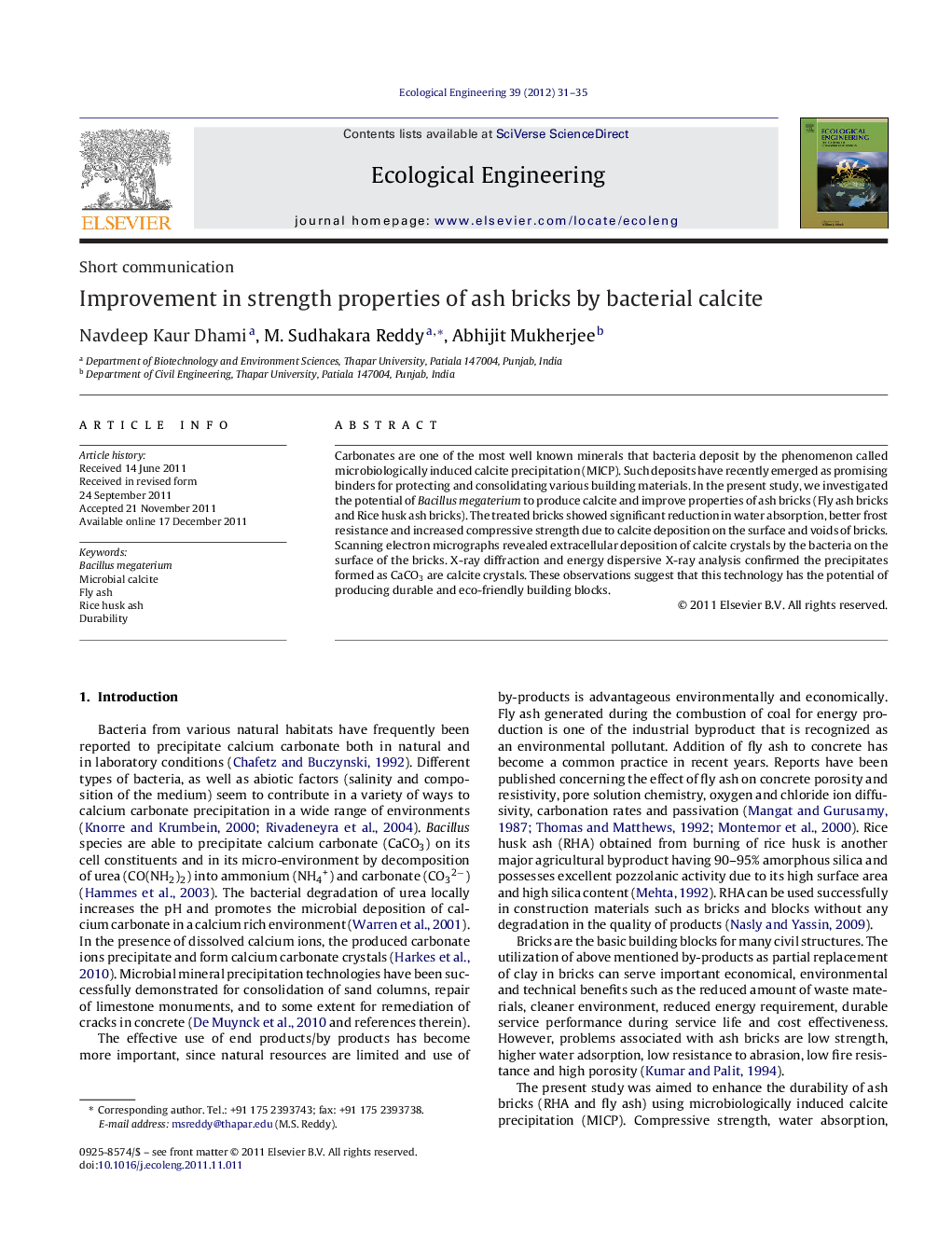| Article ID | Journal | Published Year | Pages | File Type |
|---|---|---|---|---|
| 4390204 | Ecological Engineering | 2012 | 5 Pages |
Carbonates are one of the most well known minerals that bacteria deposit by the phenomenon called microbiologically induced calcite precipitation (MICP). Such deposits have recently emerged as promising binders for protecting and consolidating various building materials. In the present study, we investigated the potential of Bacillus megaterium to produce calcite and improve properties of ash bricks (Fly ash bricks and Rice husk ash bricks). The treated bricks showed significant reduction in water absorption, better frost resistance and increased compressive strength due to calcite deposition on the surface and voids of bricks. Scanning electron micrographs revealed extracellular deposition of calcite crystals by the bacteria on the surface of the bricks. X-ray diffraction and energy dispersive X-ray analysis confirmed the precipitates formed as CaCO3 are calcite crystals. These observations suggest that this technology has the potential of producing durable and eco-friendly building blocks.
► Calcium carbonate deposition induced by ureolytic bacteria B. megaterium on ash bricks was studied. ► Water absorption significantly reduced with the application of bacterial calcite. ► Compressive strength enhanced significantly due to calcification in ash bricks compared to untreated bricks. ► This study helps in production of durable and eco-friendly building blocks prepared with rice husk ash and fly ash.
